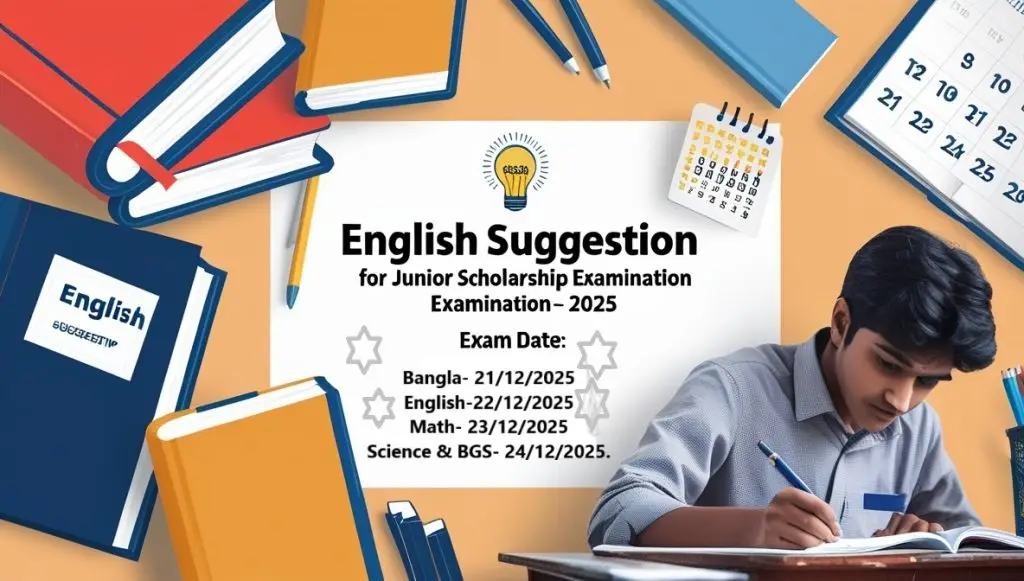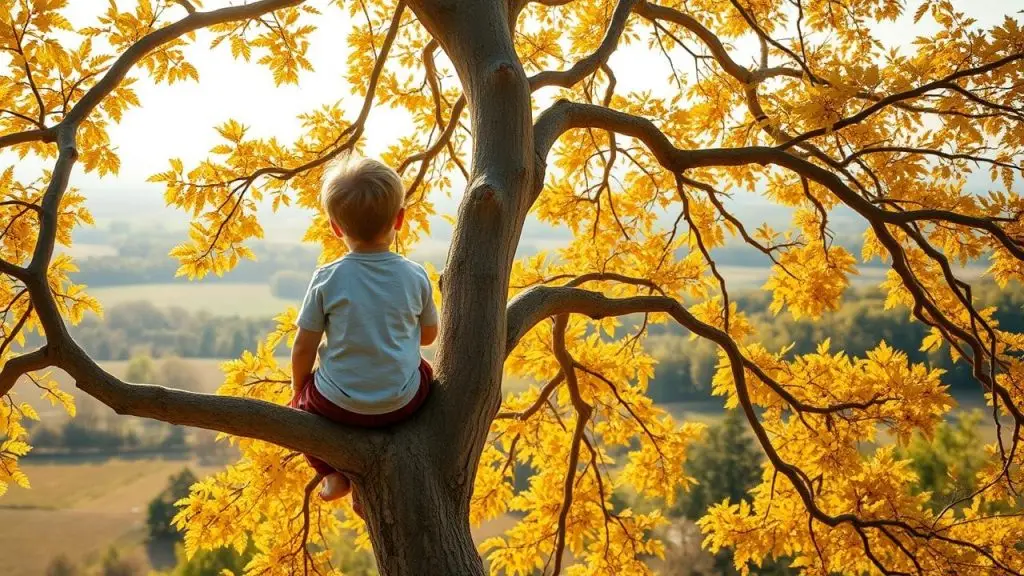Green Escape
Joseph Auslander
I have turned my face
Away from streets and crowds
To a windy place
And clouds.
I have turned from skyscrapers
That scratch out the sky,
From wet newspapers
Always whipping by.
I have taken away my heart,
I will give it again
To be split apart
By wind and rain.
I will stand like a stone
All day in the grass
Where the bees drone
And pass and repass.
I will watch them brush
Gold across their legs,
Hear the bird at hush
Over her eggs.
I will hear the wild swan
Lift high and harsh
His crooked clarion
Across the marsh.
Where the jewel-weed hangs,
Where the spotted stream runs,
Where the green beetle bangs
Bronze on bronze-
Rooted in the deep ground,
The sky tugging at my hair,
There will I be found-
There!
Line-by-line analysis of the poem “Green Escape” by Joseph Auslander:
Line 1: “I have turned my face / Away from streets and crowds”
- Meaning: The speaker rejects the busy, noisy urban life.
- Tone: Determined and longing for peace.
- Imagery: Suggests turning physically and emotionally away from chaos.
Line 2: “To a windy place / And clouds.”
- Meaning: The speaker seeks an open, natural space with fresh air and sky.
- Tone: Calm and hopeful.
- Imagery: Wind and clouds symbolize freedom and openness.
Line 3: “I have turned from skyscrapers / That scratch out the sky,”
- Meaning: The speaker leaves behind tall buildings that block nature.
- Tone: Critical of urbanization.
- Imagery: “Scratch out the sky” shows how skyscrapers destroy natural beauty.
Line 4: “From wet newspapers / Always whipping by.”
- Meaning: Rejecting the dullness and monotony of city life.
- Symbolism: Wet newspapers represent meaningless news and routine.
- Tone: Disgust and weariness.
Line 5: “I have taken away my heart, / I will give it again”
- Meaning: The speaker withdraws emotionally from the city and offers love to nature.
- Tone: Romantic and spiritual.
- Imagery: Heart as a symbol of deep feeling.
Line 6: “To be split apart / By wind and rain.”
- Meaning: The speaker wants to surrender to nature’s forces.
- Tone: Willing and accepting.
- Imagery: Wind and rain symbolize cleansing and renewal.
Line 7: “I will stand like a stone / All day in the grass”
- Meaning: The speaker desires stillness and peace in nature.
- Tone: Calm and meditative.
- Imagery: Stone represents strength and permanence.
Line 8: “Where the bees drone / And pass and repass.”
- Meaning: The speaker enjoys the simple rhythm of nature.
- Tone: Gentle and appreciative.
- Imagery: Bees symbolize life and continuity.
Line 9: “I will watch them burn / Gold across their legs,”
- Meaning: Observing bees with pollen on their legs.
- Tone: Admiring beauty.
- Imagery: Gold suggests richness and vitality.
Line 10: “Hear the bird at hush / Over her eggs.”
- Meaning: Listening to a bird quietly protecting its nest.
- Tone: Tender and peaceful.
- Imagery: Motherhood and care in nature.
Line 11: “I will hear the wild swan / Lift high and harsh”
- Meaning: The speaker hears the swan’s strong cry.
- Tone: Awe and respect.
- Imagery: Swan symbolizes grace and freedom.
Line 12: “His crooked arrow / Across the marsh.”
- Meaning: The swan flies in a curved path like an arrow.
- Tone: Vivid and dynamic.
- Imagery: Arrow suggests speed and direction.
Line 13: “Where the jewel-weed hangs, / Where the spotted stream runs,”
- Meaning: Describing natural beauty—plants and streams.
- Tone: Picturesque and serene.
- Imagery: Jewel-weed and stream create a colorful scene.
Line 14: “Where the green beetle bangs / Bronze on bronze.”
- Meaning: Beetles clashing in nature.
- Tone: Playful and lively.
- Imagery: Bronze color adds richness.
Line 15: “Rooted in the deep ground, / The sky tugging at my hair,”
- Meaning: The speaker feels connected to earth and sky.
- Tone: Spiritual and liberating.
- Imagery: Earth and sky symbolize balance and unity.
Line 16: “There I’ll be found — / There!”
- Meaning: The speaker’s ultimate desire is to be one with nature.
- Tone: Resolute and passionate.
- Imagery: Suggests final peace and belonging.
Line-by-line literary analysis with metaphors, imagery, and symbolism for “Green Escape” by Joseph Auslander:
Lines 1–2: “I have turned my face / Away from streets and crowds / To a windy place / And clouds.”
- Metaphor: Turning the face = rejecting urban life.
- Imagery: “Windy place and clouds” creates a picture of open skies and freedom.
- Symbolism: Wind and clouds symbolize liberation and purity.
Lines 3–4: “I have turned from skyscrapers / That scratch out the sky, / From wet newspapers / Always whipping by.”
- Metaphor: Skyscrapers “scratch out the sky” = city buildings destroy natural beauty.
- Imagery: Tall buildings blocking the sky; newspapers flying in the wind.
- Symbolism: Wet newspapers = monotony and meaningless routine of city life.
Lines 5–6: “I have taken away my heart, / I will give it again / To be split apart / By wind and rain.”
- Metaphor: Giving heart to wind and rain = surrendering to nature.
- Imagery: Heart torn by natural forces.
- Symbolism: Wind and rain = cleansing, renewal, and freedom.
Lines 7–8: “I will stand like a stone / All day in the grass / Where the bees drone / And pass and repass.”
- Metaphor: “Stand like a stone” = stillness and permanence.
- Imagery: Bees buzzing in grass.
- Symbolism: Stone = strength and endurance; bees = life and continuity.
Lines 9–10: “I will watch them burn / Gold across their legs, / Hear the bird at hush / Over her eggs.”
- Metaphor: “Burn gold” = pollen shining on bees’ legs.
- Imagery: Golden pollen, quiet bird nesting.
- Symbolism: Gold = richness of nature; bird = motherhood and care.
Lines 11–12: “I will hear the wild swan / Lift high and harsh / His crooked arrow / Across the marsh.”
- Metaphor: Swan’s flight as “crooked arrow” = swift, graceful movement.
- Imagery: Swan flying over marsh.
- Symbolism: Swan = freedom and elegance; marsh = untouched wilderness.
Lines 13–14: “Where the jewel-weed hangs, / Where the spotted stream runs, / Where the green beetle bangs / Bronze on bronze.”
- Metaphor: Jewel-weed = nature’s ornament.
- Imagery: Colorful plants, flowing stream, shiny beetles.
- Symbolism: Jewel-weed = beauty; beetles = vitality and struggle.
Lines 15–16: “Rooted in the deep ground, / The sky tugging at my hair, / There I’ll be found — / There!”
- Metaphor: “Sky tugging at my hair” = wind playing with hair.
- Imagery: Person standing firmly on earth with wind blowing.
- Symbolism: Deep ground = stability; sky = freedom; union of earth and sky = harmony.
✅ Summary of the Poem
The poem expresses the speaker’s longing to escape the noisy, crowded city life and find peace in nature. The speaker turns away from skyscrapers and newspapers to seek a windy, open place filled with grass, rain, and wildlife. They want to give their heart to nature, watch birds, hear the wild swan, and feel the sky tugging at their hair. Ultimately, the speaker wishes to be rooted in the deep ground, fully united with nature.
✅ Theme
- Escape from Urban Life: The poem contrasts the artificiality of city life with the purity of nature.
- Peace and Freedom: Nature offers calmness, beauty, and a sense of belonging.
- Connection with Nature: The speaker desires a deep spiritual bond with the natural world.
✅ Questions from English for Today
1. Why does the speaker turn away from the streets and crowds?
→ The speaker turns away from the streets and crowds because he wants to escape the noise, stress, and artificiality of city life and find peace and freedom in nature.
2. What does the speaker hear and see in the grass?
→ The speaker hears the sound of rain and sees jewel-weed, the spotted stream, and green beetles in the grass.
3. How does the speaker describe the sound of the swan?
→ The speaker describes the swan’s sound as harsh and high when it lifts and crosses the marsh.
4. Where does the speaker want to be found at the end of the poem?
→ The speaker wants to be found rooted in the deep ground, united with nature.
✅ Questions for More Practice
(a) Why does the speaker want to be in a windy place?
→ The speaker wants to be in a windy place to feel freedom and freshness away from the suffocating city.
(b) How does the “wet newspapers” in the poem symbolize?
→ The wet newspapers symbolize the dullness, monotony, and artificiality of urban life.
(c) What does the speaker describe in the grass in the poem?
→ The speaker describes jewel-weed, the spotted stream, and green beetles in the grass.
(d) What is the sound that the speaker hears in the grass?
→ The speaker hears the sound of rain and the rustling of nature.
(e) What does the speaker react to the bird in the poem?
→ The speaker admires the bird’s grace and freedom as it moves across the marsh.
(f) How is the speaker’s reaction to “The sky tugging at my hair”?
→ The speaker feels joy and liberation, showing his deep connection with nature.
(g) What is “jewel-weed” in the poem, and where is it found?
→ Jewel-weed is a plant found near streams and marshy areas.
(h) Does the speaker feel about nature in his poem?
→ The speaker feels peace, love, and a strong spiritual bond with nature.
(i) What does the speaker decide to give his heart to?
→ The speaker decides to give his heart to nature and its beauty.
(j) What will the poet go?
→ The poet will go to a windy, grassy place away from the crowded city.
(k) What does “Green Escape” refer to?
→ “Green Escape” refers to escaping from city life to the calm and beauty of nature.
(l) Why does the speaker need fresh air?
→ The speaker needs fresh air to refresh his mind and soul from the suffocating city life.
(m) Where does the poet want to escape?
→ The poet wants to escape from the crowded streets to open, natural spaces.
(n) What will the poet find in the greenery?
→ The poet will find peace, beauty, and a sense of belonging in the greenery.
(o) What does the poet celebrate?
→ The poet celebrates the beauty, freedom, and purity of nature.
(p) Where will the poet be found?
→ The poet will be found rooted in the deep ground, united with nature.
(q) Where will the poet hear there?
→ The poet will hear the sound of the wild swan and other natural sounds.
(r) What will the poet hear there?
→ The poet will hear the harsh, high sound of the wild swan and the music of nature.
(t) Why will the poet give his heart to greenery?
→ The poet will give his heart to greenery because he wants to escape the artificial, noisy city life and find peace, freedom, and spiritual fulfillment in nature.
(u) What does the poet decide to do in the poem “Green Escape”?
→ The poet decides to leave the crowded streets, skyscrapers, and newspapers behind and immerse himself in the beauty of nature, where he can feel the wind, rain, and the calmness of the natural world.
(v) What does the poet want to give back to nature in the poem?
→ The poet wants to give his heart and soul back to nature, showing his love and devotion to the natural environment.
(w) What is the setting of the poem?
→ The setting of the poem is a peaceful, natural environment with grass, streams, jewel-weed, beetles, bees, and wild swans—far away from the crowded city.
(x) Which sound does the poet want to hear in the natural environment?
→ The poet wants to hear the sound of bees droning, the bird’s quietness over her eggs, and the harsh, high cry of the wild swan across the marsh.
(y) What does the poem teach us about the importance of balance between human life and nature?
→ The poem teaches that humans need to maintain a balance between urban life and nature because nature provides peace, renewal, and a sense of belonging that city life cannot offer.
(z) Which thing does the poet dislike about the city in the second stanza?
→ The poet dislikes skyscrapers that block the sky and wet newspapers that symbolize monotony and meaningless routine in the city.
(z1) What does the poet want to experience by being in nature?
→ The poet wants to experience freedom, peace, beauty, and a deep spiritual connection with the earth and sky.
(z2) How does the poem impact on our practical life?
→ The poem reminds us to take breaks from stressful urban life and reconnect with nature for mental peace and emotional well-being.
(z3) What is the tone of the poem?
→ The tone of the poem is calm, reflective, and longing, with a sense of admiration for nature.
(z4) What message can we gain from the poem about the human condition?
→ The poem conveys that humans often feel trapped in artificial environments and need nature for true happiness, balance, and spiritual fulfillment.





